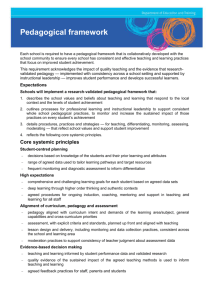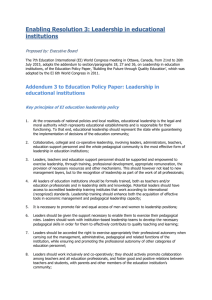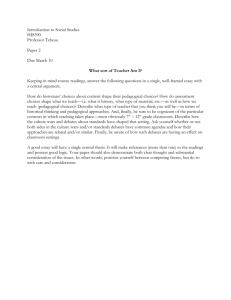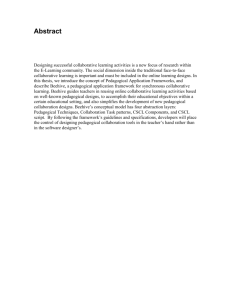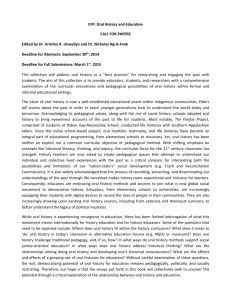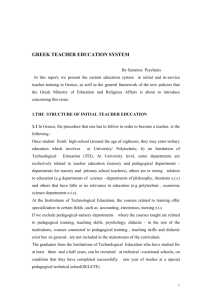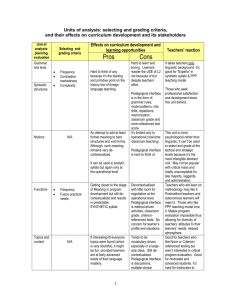Introduction to Pedagogical Patterns
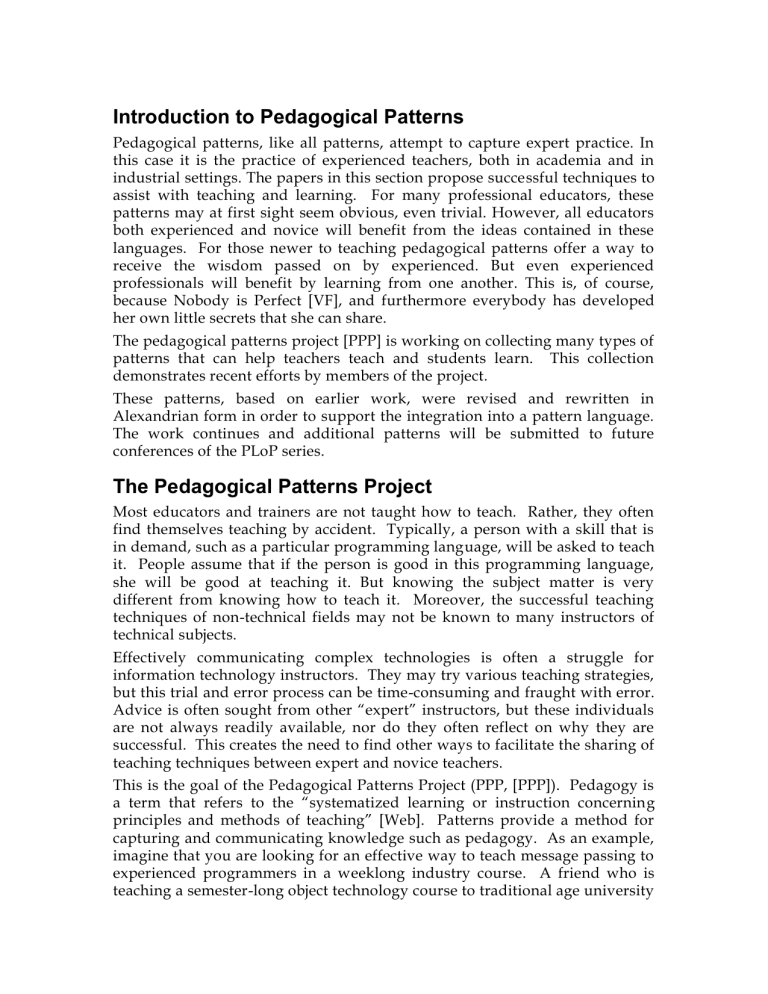
Introduction to Pedagogical Patterns
Pedagogical patterns, like all patterns, attempt to capture expert practice. In this case it is the practice of experienced teachers, both in academia and in industrial settings. The papers in this section propose successful techniques to assist with teaching and learning. For many professional educators, these patterns may at first sight seem obvious, even trivial. However, all educators both experienced and novice will benefit from the ideas contained in these languages. For those newer to teaching pedagogical patterns offer a way to receive the wisdom passed on by experienced. But even experienced professionals will benefit by learning from one another. This is, of course, because Nobody is Perfect [VF], and furthermore everybody has developed her own little secrets that she can share.
The pedagogical patterns project [PPP] is working on collecting many types of patterns that can help teachers teach and students learn. This collection demonstrates recent efforts by members of the project.
These patterns, based on earlier work, were revised and rewritten in
Alexandrian form in order to support the integration into a pattern language.
The work continues and additional patterns will be submitted to future conferences of the PLoP series.
The Pedagogical Patterns Project
Most educators and trainers are not taught how to teach. Rather, they often find themselves teaching by accident. Typically, a person with a skill that is in demand, such as a particular programming language, will be asked to teach it. People assume that if the person is good in this programming language, she will be good at teaching it. But knowing the subject matter is very different from knowing how to teach it. Moreover, the successful teaching techniques of non-technical fields may not be known to many instructors of technical subjects.
Effectively communicating complex technologies is often a struggle for information technology instructors. They may try various teaching strategies, but this trial and error process can be time-consuming and fraught with error.
Advice is often sought from other “expert” instructors, but these individuals are not always readily available, nor do they often reflect on why they are successful. This creates the need to find other ways to facilitate the sharing of teaching techniques between expert and novice teachers.
This is the goal of the Pedagogical Patterns Project (PPP, [PPP]). Pedagogy is a term that refers to the “systematized learning or instruction concerning principles and methods of teaching” [Web]. Patterns provide a method for capturing and communicating knowledge such as pedagogy. As an example, imagine that you are looking for an effective way to teach message passing to experienced programmers in a weeklong industry course. A friend who is teaching a semester-long object technology course to traditional age university
students has found an effective technique. He shares it with you without dictating the specific implementation details. This allows you to use your own creativity to implement the technique in a way that is most comfortable for you and most useful for your industry students. This is the essence of patterns – to offer a format and a process for sharing successful practices in a way that allows each practice to be used by a variety of people in many different ways.
A collection of patterns could form a repository of techniques for teaching a specific subject, such as object technology (OT). Ideally, many of the patterns would have an even broader scope than OT, but all of them would be useful in many different training or learning environments because they are proven teaching techniques.
But even this is not the end of the story. Related patterns can be combined in either a pattern catalog [Bus] or in a system of patterns [Fow]. A third possibility is to relate several patterns within a common problem space, the result of which is a language of patterns that provides a resource for solving complex problems. The goal of the project described in this paper is to form pedagogical pattern languages for teaching. This will provide instructors with the ability to share their effective teaching techniques in a common format, to document relationships between the techniques and to form powerful tools known as pattern languages.
The Pedagogical Patterns Project (http://www.pedagogicalpatterns.org) is a continuing endeavor. We invite all interested parties to join in these efforts to capture expert practice in a transferable way.
References
[Bus] Buschmann, F., Meunier, R., Rohnert, H., Sommerlad, P., Stal, M. (1996).
Pattern-Oriented Software Architecture: A System of Patterns. Chichester,
England: John Wiley & Sons.
[Fow} Fowler, Martin (1997). Analysis Patterns. Reusable Object Models.
Reading, MA: Addison-Wesley Longman, Inc.
[PPP] Pedagogical Patterns Project Home: www.pedagogicalpatterns.org
[VF] Markus Voelter, Astrid Fricke, SEMINARS, http://www.voelter.de/seminars
